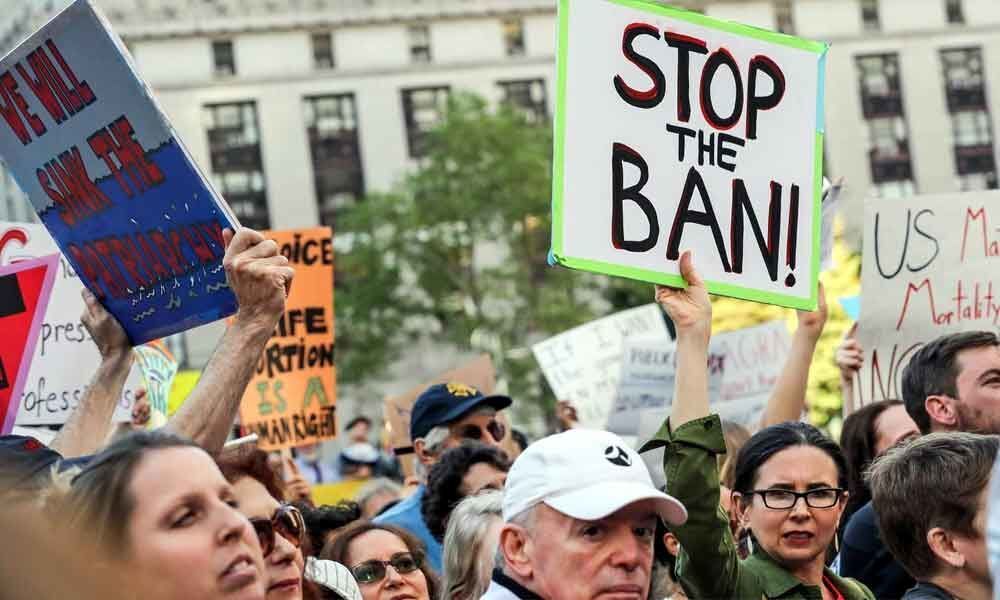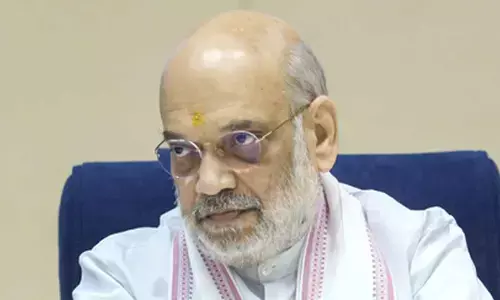US judge blocks Mississippi 'heartbeat' abortion ban

More than a dozen states have adopted laws banning or drastically curtailing access to abortion which was legalized in the landmark 1973 US Supreme Court ruling Roe v Wade.
WASHINGTON: A US federal judge Friday blocked Mississippi's strict abortion law which would have banned the procedure after six weeks of pregnancy.
The bill banning abortion where a heartbeat is detectable -- from six weeks -- was passed in March and was due to go into effect on July 1.
"Here we go again. Mississippi has passed another law banning abortions prior to viability," district judge Carlton Reeves wrote in his order.
"The parties have been here before. Last spring, plaintiffs successfully challenged Mississippi's ban on abortion after 15 weeks. The Court ruled that the law was unconstitutional and permanently enjoined its enforcement. The State responded by passing an even more restrictive bill," Reeves said.
Last year, the state passed a law banning abortion after 15 weeks of pregnancy, but it was blocked before Reeves ruled in November that it violated women's rights.
The new "Heartbeat Bill" which was signed into law by state Governor Phil Bryant makes exceptions for medical complications, but not for cases of incest or rape.
Earlier in the week Reeves heard arguments from advocates for Mississippi's only abortion clinic.
The ban "threatens immediate harm to women's rights, especially considering most women do not seek abortion services until after 6 weeks," Reeves wrote in his order.
"Allowing the law to take effect would force the clinic to stop providing most abortion care."
Bryant said he was disappointed at the court ruling.
"As governor I've pledged to do all I can to protect life. Time and time again the Legislature and I have done just that," he said in a statement.
"I will encourage the attorney general to seek immediate review of the preliminary injunction."
Chipping away at Roe v Wade
More than a dozen states have adopted laws banning or drastically curtailing access to abortion which was legalized in the landmark 1973 US Supreme Court ruling Roe v Wade.
In Alabama, Planned Parenthood and the American Civil Liberties Union filed a lawsuit Friday against the southern state's new near-total ban on abortion.
"This law is blatantly unconstitutional, and the ACLU will not stand by while politicians emboldened by President (Donald) Trump's anti-abortion agenda exploit our health and our lives for political gain," said ACLU Reproductive Freedom Project senior staff attorney Alexa Kolbi-Molinas.
Earlier this month, Governor Kay Ivey signed into law the measure that makes abortion a felony -- even in cases of rape or incest -- unless the mother's health is at risk, triggering protests in the state and beyond.
It punishes doctors with up to 99 years in prison for providing the procedure.
The ban is due to take into effect on November 15, and if it goes ahead, Alabama abortion providers "will be forced to stop providing and/or referring abortions," read the lawsuit filed on their behalf in federal court in the state.
"Enforcement of the ban will thereby inflict immediate and irreparable harm on plaintiffs' patients by violating their constitutional rights, threatening their health and well-being, and forcing them to continue their pregnancies to term against their will."
Randall Marshall, executive director of the ACLU's Alabama chapter, said the lawsuit was intended to "make sure this law never takes effect."
Several other Republican-led states have passed tough abortion laws they hope will eventually end up before the Supreme Court in hopes it will reverse Roe v Wade.
Conservative states have slowly chipped away at abortion access, starting by imposing strict conditions on facilities that provide the procedure, such as requiring that they be located near a hospital or have operating rooms or halls of a certain size.
In other states, like North Carolina, women can undergo abortion only within 20 weeks of gestation.
Missouri Governor Mike Parson signed into law Friday a measure that makes the procedure illegal from eight weeks of pregnancy, with no exceptions for rape or incest.
Five states require that women be alerted to links between abortion and breast cancer that have not been proven. And doctors in 13 states must advise women considering abortion that the fetus may feel pain -- a scientifically controversial claim.














